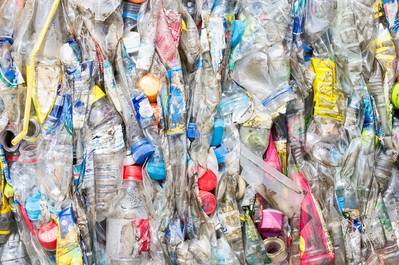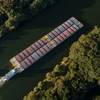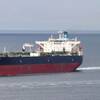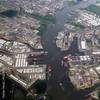Australia Wants to Recycle Trash from Ships
The Port of Hay Point in Queensland, Australia has kicked off a pilot program to investigate the feasibility of recycling garbage from international ships.
Currently, ships' crews separate recyclable garbage on board, but have limited opportunity to offload these materials at Australian ports for recycling. Any garbage that is separated on board is combined when offloaded in Australian ports and has to undergo treatment by autoclave or deep-burial to meet Australia’s biosecurity requirements. While these treatments address any biosecurity risk, the opportunity for recycling is lost and creates a disincentive for ships to discharge garbage in Australian ports.
The pilot program, which is being conducted by the Australian Maritime Safety Authority (AMSA), in partnership with the Department of Agriculture and Water Resources (Agriculture), North Queensland Bulk Ports Corporation (NQBP) and Mackay Regional Council, will allow ships to hand over glass, aluminum and steel cans and hard plastic containers participate as part of their routine operations on arrival at port.
AMSA's Manager of Environmental Standards Matt Johnston noted it is important to provide options for ships to dispose of recyclables and garbage in Australian ports while continuing to ensure Australian industries, native wildlife, human health and the environment are protected. The recyclables will be inspected by Agriculture’s biosecurity officers on board the ship and be released from biosecurity control provided they are free from biosecurity risks, such as animal or plant material.
“We want to make it easier for international ships to dispose of their garbage and recyclables in the right way, while ensuring biosecurity risks are managed, to help prevent illegal discharges of garbage into the sea, which presents a potential uncontrolled biosecurity risk, and reduce the amount of recyclables that end up in Australian landfill,” Johnston said.
The program will also aim to identify opportunities and obstacles for recycling of ships' garbage in all Australian ports.
Assistant Secretary of Compliance Controls at the Department of Agriculture and Water Resources, Dean Merrilees, said the program was a great joint initiative that would ensure biosecurity risks associated with international ships continue to be managed, while also improving recycling arrangements.
“Garbage brought to Australia on ships could be carrying a range of exotic pests and diseases that can impact on our industries, environment, plant, animal and human health, so it is important these risks continue to be managed,” Merrilees said. “Through this pilot program, recyclables that arrive on international ships will still need to undergo usual biosecurity clearance, but they will be able to be disposed of and recycled in the same way as any domestic or municipal recyclables.
The Port of Hay Point has been selected as one of two initial pilot sites for the program to operate through to the end of May, 2018. The other site is the Port of Brisbane.
NQBP Acting CEO Rochelle Macdonald said the AMSA trial aligned with NQBP's commitment to both sustainability and improving operational efficiencies.
“The Hay Point recycling pilot is a strong addition to NQBP's ambition for leadership in sustainable practices,” Dr. Macdonald said. “It provides strict biosecurity protection while improving environmental outcomes and efficiency in waste management. Waste reduction, reuse and recovery is a key goal of NQBP’s Sustainability Plan 2015+. By working with AMSA and Mackay Regional Council for this trial, NQBP is playing a leading role in improving waste management practices at the port.”
Mayor of Mackay Regional Council Greg Williamson said the trial will help reduce waste ending up in our landfill or in our ocean. “The recyclable material will be processed at our Materials Recovery Facility. We will be monitoring the material that comes in to see if it’s viable and sustainable for the long-term,” Cr. Williamson said.











